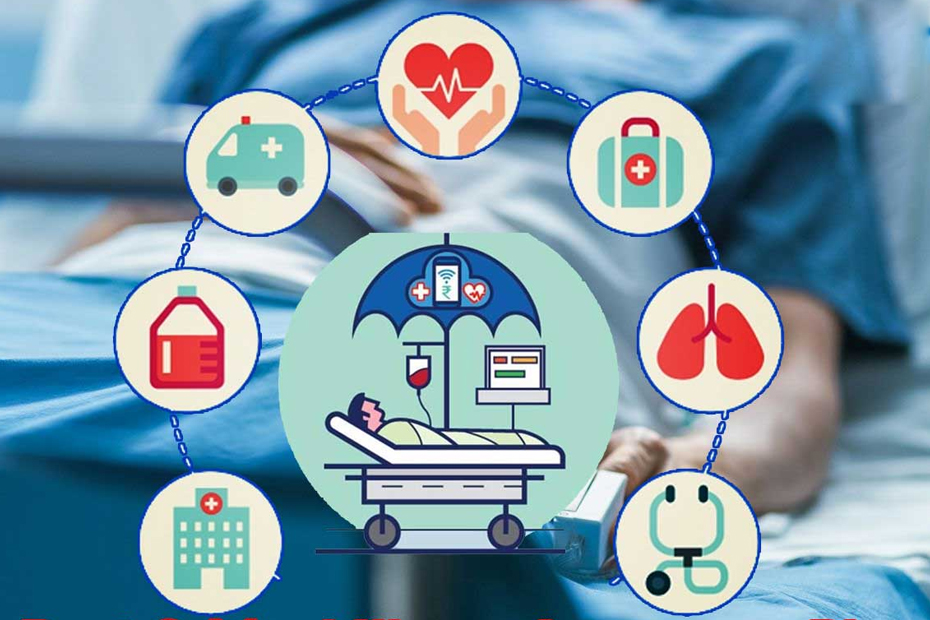In today’s fast-paced world, the prevalence of critical illnesses is on the rise, making it imperative to have a robust insurance plan. Standard insurance policies often fall short when it comes to covering the extensive costs associated with severe medical conditions.
That is where critical illness insurance becomes essential, offering financial protection against life-threatening diseases. Understanding the top critical illnesses covered under such policies can help individuals make informed decisions about their health coverage.
1. Kidney Failure Requiring Regular Dialysis
Kidney failure, or end-stage renal disease, occurs when the kidneys lose their ability to filter waste from the blood effectively. This condition necessitates regular dialysis treatments or a kidney transplant. Dialysis is a lifelong process for many patients, involving significant time and financial commitments.
The costs associated with dialysis can be substantial, and managing these expenses can be challenging without adequate insurance coverage. Critical illness insurance policies cover kidney failure, providing financial support to manage the ongoing costs of dialysis, medications, and potential transplant procedures, thereby alleviating the financial strain on patients and their families.
2. Stroke Resulting in Permanent Symptoms
A stroke occurs when the blood supply to a part of the brain is interrupted, leading to potential long-term disabilities such as paralysis or loss of speech. Recovery can be prolonged, often requiring extensive rehabilitation and physiotherapy.
The financial burden of treatment and rehabilitation can be substantial. Critical illness insurance offers a lump-sum payout upon diagnosis, which can be used to cover medical treatments, rehabilitation costs, and support services, aiding in the patient’s journey toward recovery.
3. Paralysis
Paralysis is the loss of the ability to move one or more muscles, often resulting from neurological damage. This condition can significantly impact an individual’s quality of life, restricting movement and preventing them from fulfilling daily responsibilities.
Recovery may involve long-term physiotherapy and rehabilitation, which can be costly. Critical illness insurance provides financial assistance to cover these expenses, ensuring patients can access necessary treatments without financial constraints.
4. Cancer
Cancer involves the uncontrolled growth of abnormal cells in the body, which can spread to other parts if not detected and treated early. There are over 100 types of cancer, and treatment often requires multiple cycles of chemotherapy, radiation, or surgery.
The costs associated with cancer treatment can be overwhelming, with each chemotherapy cycle potentially costing between ₹50,000 to ₹70,000 and additional expenses for scans and tests adding up to ₹1 lakh. Critical illness insurance provides a lump-sum benefit upon diagnosis, which can be used to cover treatment costs, medications, and other related expenses, ensuring that patients can focus on recovery without the added burden of financial stress.
5. Cardiac Arrest Requiring Coronary Artery Bypass Grafting (CABG) Procedure
A cardiac arrest occurs when the oxygen supply to the heart is blocked due to a clot in the arteries. This may necessitate procedures like angioplasty or open-heart surgery to unclog the arteries. The recovery process may take anywhere between a week to six months, depending on the severity of the clot.
The costs for such procedures vary from ₹1.5 lakh to ₹3 lakh, depending on the city and hospital. Critical illness insurance provides financial assistance to manage these expenses, ensuring timely and adequate treatment.
The Financial Impact of Critical Illnesses
Beyond the immediate medical expenses, critical illnesses can lead to significant financial strain due to loss of income, ongoing treatment costs, and lifestyle adjustments. For instance, diseases like cancer, cardiovascular diseases, chronic respiratory diseases, and diabetes are the chief killers in India, accounting for 60% of total deaths.
The incidence of heart disease and diabetes is projected to double, and cancer cases are expected to increase by 25%. These statistics highlight the importance of having a financial safety net to manage the costs associated with critical illnesses.
The Role of Critical Illness Insurance
Critical illness insurance provides a lump-sum payout upon diagnosis of a covered condition, offering financial flexibility to manage expenses not typically covered by standard health insurance. This includes costs related to treatment, rehabilitation, lifestyle changes, and compensating for lost income during recovery. Having such coverage ensures that individuals can focus on their recovery without the added burden of financial stress.
Choosing the Best Critical Illness Insurance
When selecting a critical illness insurance policy, consider the following factors:
- Coverage Scope: Ensure that the policy covers a comprehensive list of critical illnesses, including those most prevalent in your region or family history.
- Sum Assured: Choose a sum assured that aligns with potential treatment costs and your financial needs.
- Waiting Period: Be aware of the waiting period before the coverage becomes active for specific illnesses.
- Survival Period Clause: Some policies require the insured to survive a certain number of days post-diagnosis to claim the benefit.
- Premium Rates: Compare premium rates across different insurers to find a policy that offers good value for the coverage provided.
Integrating Critical Illness Cover into Your Health Insurance Plan
Many insurers offer critical illness riders that can be added to existing health insurance plans. This integration provides more comprehensive coverage, combining the benefits of standard health insurance with the additional protection of critical illness coverage. Alternatively, standalone critical illness policies are available for those seeking dedicated coverage.
Final Word
The increasing prevalence of critical illnesses underscores the importance of having adequate financial protection. Critical illness insurance serves as a vital component of a comprehensive health insurance strategy, offering financial support when it’s needed most.

